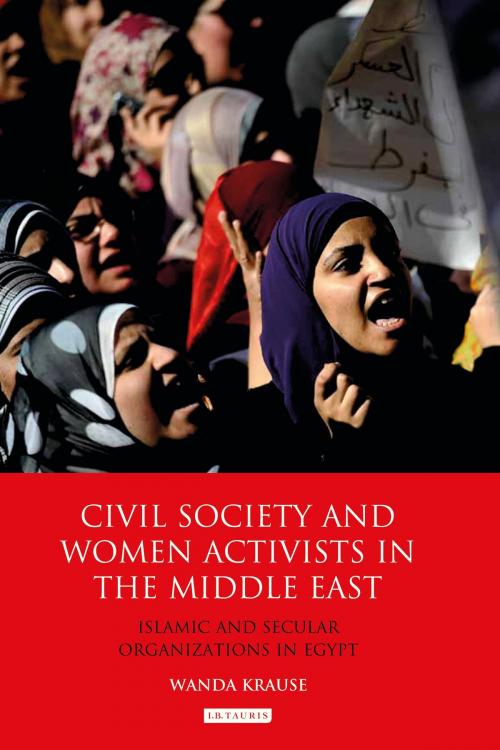Civil Society and Women Activists in the Middle East
Islamic and Secular Organizations in Egypt
Nonfiction, Social & Cultural Studies, Political Science, Social Science, History| Author: | Wanda Krause | ISBN: | 9780857732149 |
| Publisher: | Bloomsbury Publishing | Publication: | May 27, 2012 |
| Imprint: | I.B. Tauris | Language: | English |
| Author: | Wanda Krause |
| ISBN: | 9780857732149 |
| Publisher: | Bloomsbury Publishing |
| Publication: | May 27, 2012 |
| Imprint: | I.B. Tauris |
| Language: | English |
In the Middle East, and in Egypt in particular, there has always been a tendency to accord complete supremacy to the authority and might of the state, and to see 'society' as a separate, powerless entity. However, after the uprisings which began in early 2011, this assumption was turned on its head. And it is the wide range of political activity beyond the remit of the official state where Wanda Krause locates a dynamic potential for political change from the bottom up. She looks in particular at the influential role of women's private voluntary organisations in shaping concepts of civil society and democracy, contextualizing their demands within a situation which sees the neglect of services and basic needs of the poor by the Egyptian state.
Since the late 1970s, beginning with the Bread Riots, Egyptian unskilled and skilled labourers, factory workers and civil servants have carried out a number of strikes and demonstrations - many prompted by women. And in the twenty-first century, with the rumours that Hosni Mubarak would attempt to devolve power to his son, Gamal Mubarak, protests increased, culminating in the extraordinary scenes on Tahrir Square. Here, Krause explores the role of the female as the political actor in many of these calls for protest and reform, arguing that female activists are changing the face of Egyptian politics by instilling democratic values from the bottom up. Moreover, and as a surprise to many, it may not only be those who profess to be progressive, secular and liberal who are significant in this respect. By looking at the activities and women involved in both secular and 'Islamist' organizations, she offers a steadfast critique of the view that Islamic women activists are insignificant, 'backward' or 'uncivil', also pointing out the often-ignored contextual dimensions of secular feminist action.
Krause's examination of women activists in Egypt today is vital for those interested in Middle East and Gender Studies, as well as those researching the wider issues of civil society and democratization.
In the Middle East, and in Egypt in particular, there has always been a tendency to accord complete supremacy to the authority and might of the state, and to see 'society' as a separate, powerless entity. However, after the uprisings which began in early 2011, this assumption was turned on its head. And it is the wide range of political activity beyond the remit of the official state where Wanda Krause locates a dynamic potential for political change from the bottom up. She looks in particular at the influential role of women's private voluntary organisations in shaping concepts of civil society and democracy, contextualizing their demands within a situation which sees the neglect of services and basic needs of the poor by the Egyptian state.
Since the late 1970s, beginning with the Bread Riots, Egyptian unskilled and skilled labourers, factory workers and civil servants have carried out a number of strikes and demonstrations - many prompted by women. And in the twenty-first century, with the rumours that Hosni Mubarak would attempt to devolve power to his son, Gamal Mubarak, protests increased, culminating in the extraordinary scenes on Tahrir Square. Here, Krause explores the role of the female as the political actor in many of these calls for protest and reform, arguing that female activists are changing the face of Egyptian politics by instilling democratic values from the bottom up. Moreover, and as a surprise to many, it may not only be those who profess to be progressive, secular and liberal who are significant in this respect. By looking at the activities and women involved in both secular and 'Islamist' organizations, she offers a steadfast critique of the view that Islamic women activists are insignificant, 'backward' or 'uncivil', also pointing out the often-ignored contextual dimensions of secular feminist action.
Krause's examination of women activists in Egypt today is vital for those interested in Middle East and Gender Studies, as well as those researching the wider issues of civil society and democratization.















